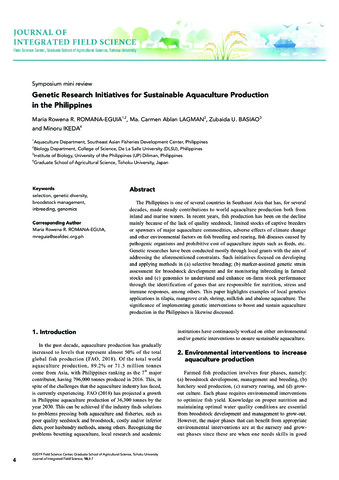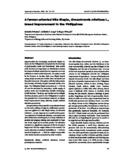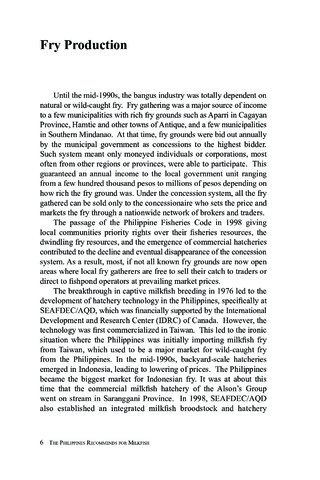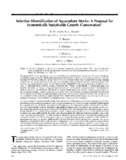Genetic research initiatives for sustainable aquaculture production in the Philippines
Share
Abstract
The Philippines is one of several countries in Southeast Asia that has, for several decades, made steady contributions to world aquaculture production both from inland and marine waters. In recent years, fish production has been on the decline mainly because of the lack of quality seedstock, limited stocks of captive breeders or spawners of major aquaculture commodities, adverse effects of climate change and other environmental factors on fish breeding and rearing, fish diseases caused by pathogenic organisms and prohibitive cost of aquaculture inputs such as feeds, etc. Genetic researches have been conducted mostly through local grants with the aim of addressing the aforementioned constraints. Such initiatives focused on developing and applying methods in (a) selective breeding; (b) marker-assisted genetic strain assessment for broodstock development and for monitoring inbreeding in farmed stocks and (c) genomics to understand and enhance on-farm stock performance through the identification of genes that are responsible for nutrition, stress and immune responses, among others. This paper highlights examples of local genetics applications in tilapia, mangrove crab, shrimp, milkfish and abalone aquaculture. The significance of implementing genetic interventions to boost and sustain aquaculture production in the Philippines is likewise discussed.
Suggested Citation
Romana-Eguia, M. R. R., Ablan Lagman, M. C., Basiao, Z. U., & Ikeda, M. (2019). Genetic research initiatives for sustainable aquaculture production in the Philippines. Journal of Integrated Field Science , 16, 4-7. http://hdl.handle.net/10097/00125666
Subject
Collections
- AQD Journal Articles [1249]
Related items
Showing items related by title, author, creator and subject.
-
A farmer-oriented Nile tilapia, Oreochromis niloticus L., breed improvement in the Philippines
Basiao, Zubaida U.; Arago, Adelaida L.; Doyle, Roger W. (Blackwell Publishing, 2005)Opportunities for developing small-scale tilapia industry in the Philippines is hampered by the shortage of good-quality seeds and broodstock. Most small-scale farmers are dependent on distribution centres for improved ... -
[The Philippines recommends for milkfish:] Fry production
Ayson, Evelyn Grace de Jesus; Eguia, Maria Rowena R.; Garcia, Yolanda T.; Salayo, Nerissa D.; The Milkfish Technical Committee 2016 (DOST-PCAARRD, 2016) -
Selective diversification of aquaculture stocks: A proposal for economically sustainable genetic conservation
Doyle, R. W.; Shackel, N. L.; Basiao, Zubaida; Uraiwan, S.; Matricia, T.; Talbot, A. J. (NRC Research Press, 1991)The genetic diversity of aquaculture stocks can be maintained, and their genetic impact on wild stocks minimized, by breeding programmes that deliberately generate genetic diversity. Current animal breeding practices are ...




